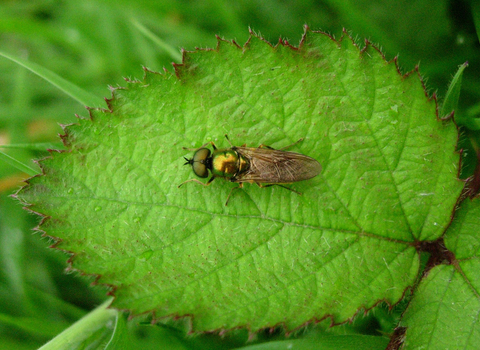
Broad Centurion ©Laurence Livermore
Broad centurion
The Broad centurion, or 'Green soldier fly', is one of our most common soldier flies, and is often found in gardens. It has hairy eyes and a metallic blue or bronze body. It is an important pollinator.
Scientific name
Chloromyia formosaWhen to see
May to AugustSpecies information
Category
Statistics
Length: 1cmCommon.
